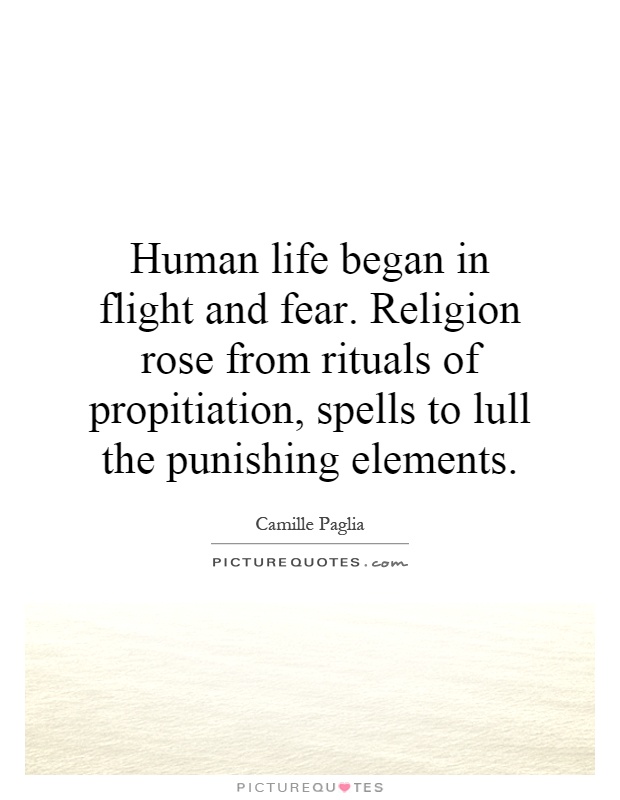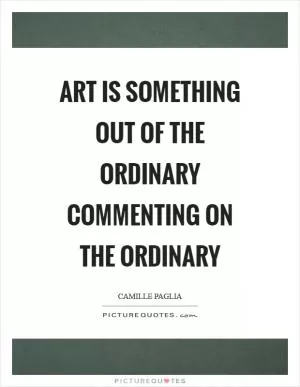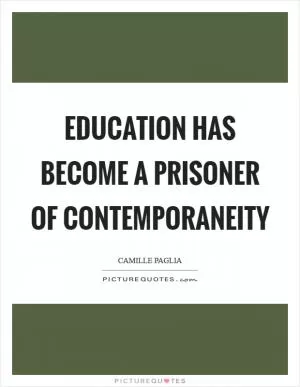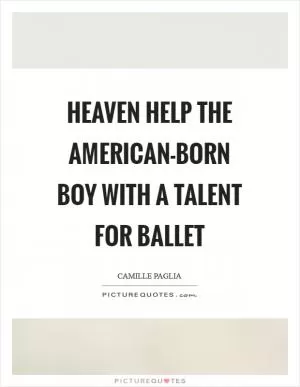Human life began in flight and fear. Religion rose from rituals of propitiation, spells to lull the punishing elements

Human life began in flight and fear. Religion rose from rituals of propitiation, spells to lull the punishing elements
Camille Paglia, a renowned cultural critic and feminist scholar, has often explored the origins of human civilization and the role of religion in shaping society. In her work, Paglia has delved into the primal instincts and fears that have driven human behavior since the dawn of time. The statement that "human life began in flight and fear" resonates with Paglia's belief that early humans were constantly on the move, seeking shelter and safety from predators and natural disasters.Paglia has also examined the role of religion in providing comfort and solace to early humans in the face of the unknown and the terrifying. She argues that religion arose from rituals of propitiation, where humans sought to appease the gods or spirits that they believed controlled the elements and their fate. These rituals were a way for early humans to exert some control over their environment and to protect themselves from harm.
Paglia has also explored the idea that religion served as a way to lull the punishing elements, such as storms, droughts, and other natural disasters. By performing rituals and spells, early humans believed they could influence the gods or spirits to bring them good fortune and protect them from harm. This belief in the power of ritual and magic to control the forces of nature is a theme that runs through much of Paglia's work.












 Friendship Quotes
Friendship Quotes Love Quotes
Love Quotes Life Quotes
Life Quotes Funny Quotes
Funny Quotes Motivational Quotes
Motivational Quotes Inspirational Quotes
Inspirational Quotes